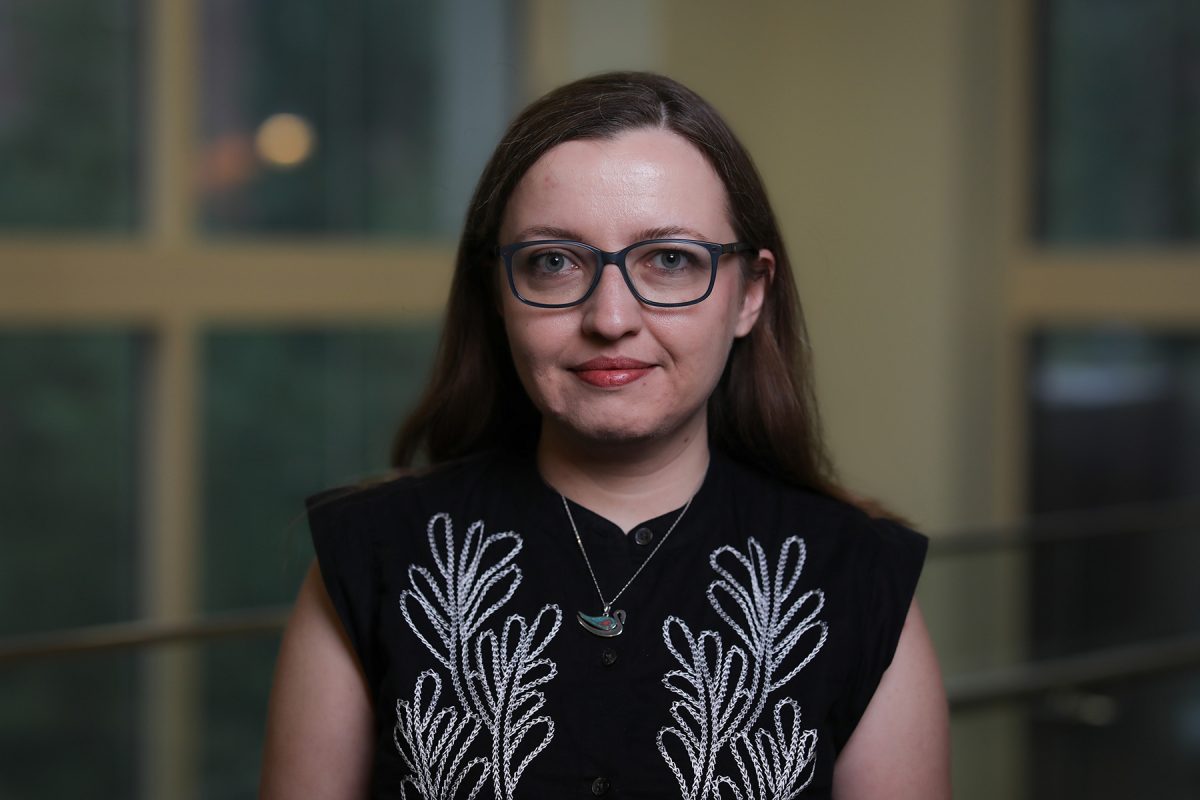
A Florida State University faculty member has been recognized by the Association for Psychological Science (APS) for her research into snap judgments made when individuals first meet.
Assistant Professor of Psychology Irmak Olcaysoy Okten has been named a 2024 Rising Star by APS, a recognition of early-career researchers whose innovative work has already advanced the field and promises continued research excellence. Olcaysoy Okten is among 70 rising stars selected worldwide this year and is the 10th FSU faculty member to receive the recognition.
“I am deeply honored and humbled to receive this award,” Olcaysoy Okten said. “My lab will continue its dedication to conducting research of the highest quality in social psychology to live up to such a big honor.”
Since its establishment in 1988, APS has promoted the connection of innovative research methodology to the bedrock scientific values of transparency and rigor. The organization and its global membership are committed to elevating each new generation of psychological scientists and engages the scientific community through events and publication of six of the most influential journals in the field.
Olcaysoy Okten’s lab, the Motivated Social Cognition Lab, investigates how people form impressions of others, intentionally and unintentionally, they may have when doing so. Her research has demonstrated people strongly rely on their first impressions of others, which are formed spontaneously and unintentionally, especially when quick judgments are necessary.
“Understanding the psychological processes underlying these perceptions would be pivotal in making informed decisions in important spheres such as medical, legal, educational and organizational contexts.”
– Irmak Olcaysoy Okte, assistant professor of psychology and APS 2024 Rising Star
In a series of studies led by Olcaysoy Okten and published by the Journal of Personality and Social Psychology in 2019, participants’ first impressions were so robust that they remained unimpacted by new information about the same people after their initial encounter. These snap judgments persisted even when there was clear evidence that participants’ first impressions could be wrong and they could not recall details of their initial encounters.
“The ultimate goal of my research is to help people become aware of their perceptions and false beliefs about other people and things,” Olcaysoy Okten said. “Understanding the psychological processes underlying these perceptions would be pivotal in making informed decisions in important spheres such as medical, legal, educational and organizational contexts.”
Olcaysoy Okten’s research suggests that first impressions could play major roles in various real-world contexts including hiring decisions, jury verdicts on criminality and doctors’ medical recommendations to patients. Awareness of potential first impressions can result in fairer judgments and motivate decision-makers to fully consider and evaluate a job candidate’s qualifications, a defendant’s actions, or a patient’s symptoms, for example.
Her most recent work examines the role of “intellectual humility,” a character virtue expressed when individuals objectively learn information about others, society and themselves. More specifically, Olcaysoy Okten’s lab investigates ways of motivating people to accept the possibility of being wrong and find a middle ground between being arrogant and timid in their beliefs.
“My previous work shows that those who display intellectual humility seek reliable information about other people and beliefs more often,” Olcaysoy Okten said. “For instance, we found that intellectually humble people were more open to new health-related information coming from medical experts during the early times of the pandemic. I believe intellectual humility can also help people address their false or incomplete beliefs about others and society in general, which is what my current work is investigating further.”
Olcaysoy Okten earned a doctorate in social psychology from Lehigh University in Bethlehem, Pennsylvania, in 2018, and completed postdoctoral work at New York University and the University of Delaware before coming to FSU as an assistant professor in 2022. A first-generation college graduate, she holds two master’s degrees in social psychology, earned in 2015 from Lehigh University and in 2012 from Boğaziçi University in Istanbul, Turkey.
“Dr. Olcaysoy Okten’s work has incredibly broad implications, and her unique training and cultural background contribute to the innovativeness of her work,” said Brad Schmidt, chair of the Department of Psychology. “APS is one of the largest psychological organizations in the world, so external awards such as the Rising Star designation bring increased visibility to our department and FSU more broadly.”
To learn more about Olcaysoy Okten’s work and psychology at FSU, visit psychology.fsu.edu.




